28 Jun2019
By Jerrica Thurman
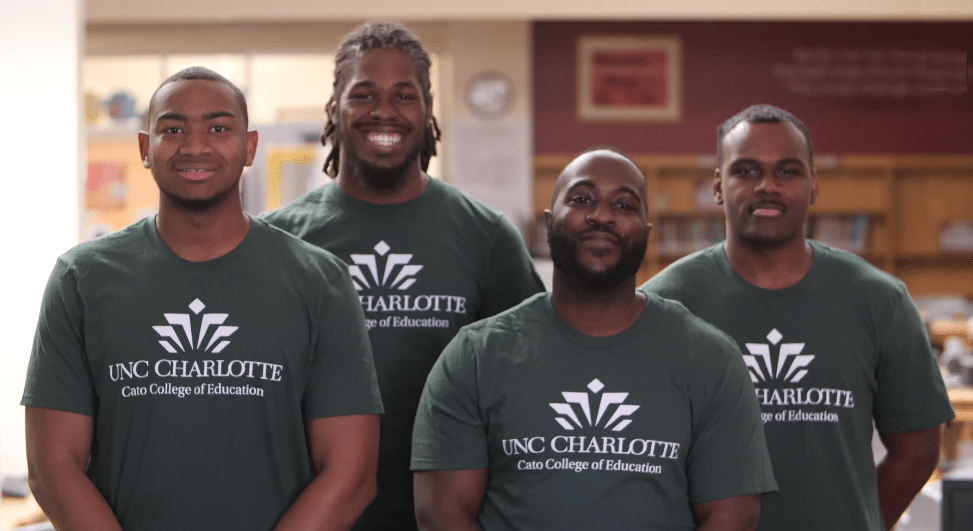
AACTE member institution Cato College of Education at the University of North Carolina at Charlotte (UNCC) works to create effective solutions to the shortage of Black male teachers. Thomas Fisher, supervisor of student teaching in the Office of School and Community Partnerships, recruited four of his former students to help implement a program to engage and recruit Black male students into the teaching profession. The team visits schools and shares their story to inspire a new generation of educators in the most underrepresented demographic in teaching.
“There’s only 2% Black male teachers in the United States,” says Timothy Wells, social studies teacher at Ridge Road Middle School, who is featured in the “What’s Your Impact?” video. “Studies show that your success increases if you have a Black male teacher or a male teacher in general from an early age.” The video spotlights Black male graduates of UNC’s Cato College of Education as they share why they pursued a teaching career. It also includes Edwin Campbell, American history teacher at Vance High School; Devin Murphy, math teacher at Myers Park High School; and Dwayne Simmons, English teacher and dean of students at Quail Hollow Middle School. Please take a few minutes to watch the video above to hear the dynamic stories of these educators.
28 Jun2019
By Brandon R.T. Frost
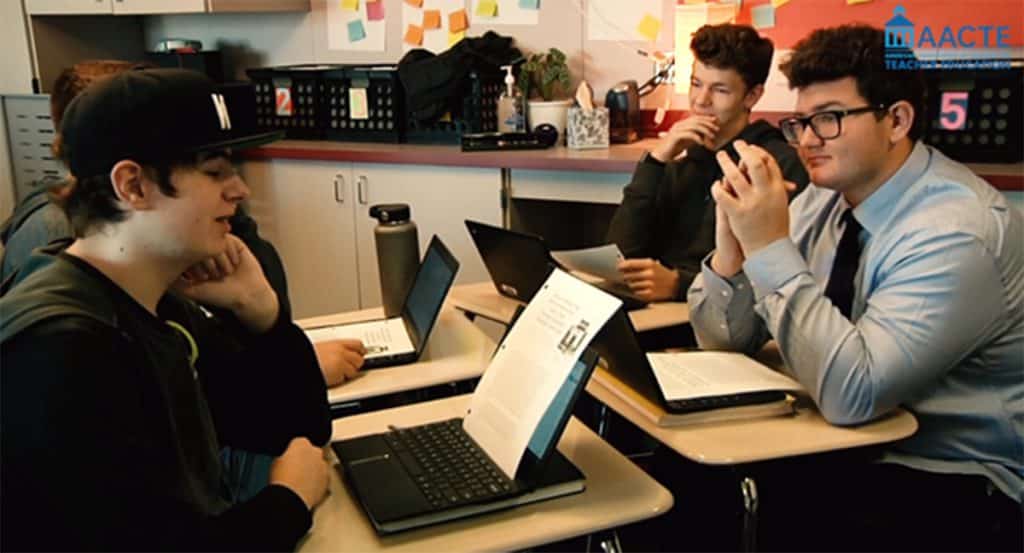
Empowering teachers to feel adequately prepared on their first day of teaching is the goal of Portland State University’s (PSU) Secondary Dual Education Program (SPED). As classrooms becomes more diverse, teachers need skills to address all students’ needs and make every student feel they are included in a positive community.
Andrew Gilford, assistant principal at Clackamas High School, believes the training and preparation his teachers receive from SPED enables them to meet the needs of all their students in the classroom. The program requires all teacher candidates to have two years of practice before entering the classroom. In particular, during the two years candidates engage in a combination of observation and student teaching. Michael Bowersox agrees that the two-year program allowed him to combine his coursework at PSU with classroom practice so that he is ready to be an effective teacher on the very first day as a teacher of record. Teacher candidates are matched with master teachers, learn to plan together, and develop the teaching skills to positively affect student achievement for all.
The highlight of PSU’s Dual Degree program is the training it provides its teacher candidates to be inclusive educators. “A characteristic of a successful classroom is the ability for everyone to feel included and have the opportunity to be included,” says Joseph Cornett, a graduate of PSU and a social studies teacher at David Douglas High School. He explains that the program taught him how to set up his students for success, work collaboratively with teachers, and navigate the school system and curriculum.
To learn more, view the video highlighting PSU’s Secondary Dual Education program, part of AACTE’s Research-to-Practice Spotlight Series.
28 Jun2019
By Katrina Norfleet
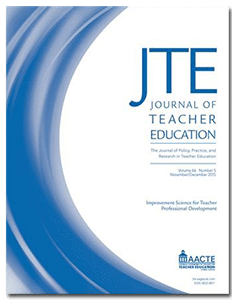 In the recently released 2019 Journal Citation Reports, AACTE’s Journal of Teacher Education (JTE) achieved a 2-year impact factor score of 3.263—indicating the average number of times any JTE article published in 2016 or 2017 was cited during 2018. The impact factor increased from JTE’s last score of 3.180, and keeps its ranking as 12th out of 238 journals worldwide in the “education and educational research” category.
In the recently released 2019 Journal Citation Reports, AACTE’s Journal of Teacher Education (JTE) achieved a 2-year impact factor score of 3.263—indicating the average number of times any JTE article published in 2016 or 2017 was cited during 2018. The impact factor increased from JTE’s last score of 3.180, and keeps its ranking as 12th out of 238 journals worldwide in the “education and educational research” category.
The journal, now in its 70th year of publication, is widely known for its high standard of quality and diverse perspectives on policy, practice, and research in teacher preparation. The number of citations of JTE articles in other journals provides a snapshot of its significance to the profession.
This high ranking is also a reflection of the scholarly rigor assured by the editors and peer reviewers. Michigan State University’s (MSU) College of Education currently serves as the editorial host of the AACTE flagship journal. MSU completed its first 3-year term as editorial host in 2018, and will continue to lead the editorial process through 2021. As of July 1, 2018, the coeditors are Tonya Bartell, Dorinda Carter Andrews, Robert Floden, and Gail Richmond, all from MSU.
One of the fundamental goals of the journal is the use of evidence from rigorous investigation to identify and address the increasingly complex issues confronting teacher development at the national and global levels. Thanks to the MSU editorial team and publishing partners at SAGE, a number of global perspectives factor into the journal. These include the translation and posting of article abstracts online in Spanish, German, and Mandarin; the high number of submissions—nearly half—from outside the United States; and the thousands of subscribers who read the journal through SAGE’s “developing world” initiatives.
To learn more about the journal and its current editorial team, visit aacte.org. AACTE members can also access JTE content online via the page’s “AACTE Member Free JTE Access” button—including the complete archive dating back to 1950 as well as prepublication articles in the SAGE Online First system.
27 Jun2019
By Azaria Cunningham
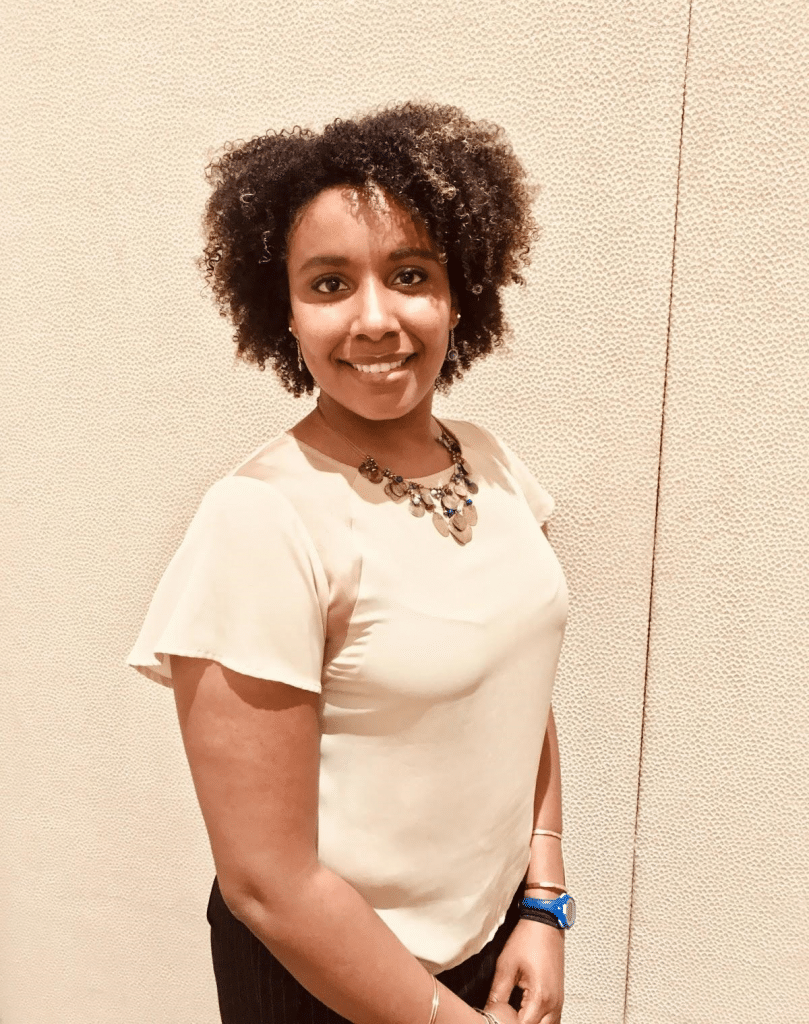 Congratulations to Dana Dunwoody, Holmes Scholar of the Month for June 2019! Dunwoody recently completed her dissertation defense at Boston University and will graduate in September 2019. Her dissertation research examines “Practicing Critical Coaching: Disrupting traditional youth sport coaching with social justice and critical consciousness.”
Congratulations to Dana Dunwoody, Holmes Scholar of the Month for June 2019! Dunwoody recently completed her dissertation defense at Boston University and will graduate in September 2019. Her dissertation research examines “Practicing Critical Coaching: Disrupting traditional youth sport coaching with social justice and critical consciousness.”
Dunwoody served as the Holmes national president from 2017–2019, and implemented many positive changes during her tenure. Prior to that, she served as Holmes Scholars sergeant-at-arms (2016-2017), and organized and planned many conferences for the Holmes community as well as her institution.
Her service also includes her work with Ultimate Peace, where she facilitated discussions with leaders in training Middle East program directors on redesigning the curriculum for youth leaders and coaches. In this role, she has led discussions with Middle East staff on the implementation of cross-cultural equity, diversity, and inclusion within coaching programs.
Upon graduation, Dunwoody plans to continue her career at Boston University with the Associate Provost’s Office of Professional Development & Postdoctoral Affairs. In her upcoming position, she will work collaboratively with a team of associate provosts, postdoctoral associates, and graduate assistants across two universities: Boston University and Northwestern University.
27 Jun2019
By North Carolina State College of Education

The NC State College of Education and The Innovation Project have selected 19 N.C. High School Mathematics Master Teaching Fellows.
Supported by a five-year, $1.8 million grant from the National Science Foundation, this program will prepare, support and retain master teachers of mathematics from high-needs school districts across the state of North Carolina, and is a partnership between the NC State College of Education, The Innovation Project and seven school districts where the 19 fellows come from:
27 Jun2019
By Lynn M. Gangone

This article by President and CEO Lynn M. Gangone was originally published in the “Empowering Our Educators” supplement to USA Today and on the Education and Career News website. The article and photo are reprinted with permission.
Effective educators are developed, not born. Their preparation begins in colleges and schools of education and persists through the professional development during their careers. As the needs of student learners evolve, so too must our development of educators.
25 Jun2019
By The Virgin Islands Consortium
This article and photo originally appeared in The Virgin Islands Consortium and is reprinted with permission.
The University of the Virgin Islands on Monday launched an Inclusive Childcare Laboratory and Diagnostic Center on the St. Thomas Campus. According a release the institution of higher learning issued, the new facility is intended to enhance the educational experience of preservice teachers who will be supervised by professors as part of their studies—while supporting the university’s students and employees to better manage the challenges of balancing parenthood and college life. UVI will be among the first Historically Black Colleges and Universities to provide this service.
The establishment of a research-based childcare program linked to early childhood and the School of Education has been a goal of UVI President David Hall’s since 2014. “This idea has evolved over the years and it’s no longer just a place to care for our students’ children, but an opportunity to create a model early education center that can help enhance the quality of early childhood education throughout the Virgin Islands,” Mr. Hall said. “The significance of this project is now more transformative than our students imagined.”
As many as 30 children can be admitted at the center at a time. The center is open for children between ages two to eleven. Initially, the center will be operational from 3 p.m. to 10 p.m. However, it is expected to evolve from an after school to full-day childcare center, according to the university.
The idea for the childcare center arose from a survey of UVI students, staff and faculty who emphasized the need for such a facility on campus. “The University’s ability to address this critical need indicates that we listen to our students and we strive to address their needs,” Mr. Hall said.
25 Jun2019
By Lynn M. Gangone
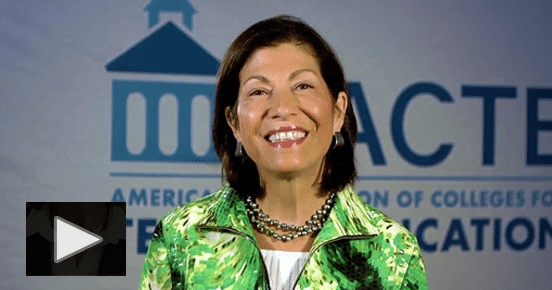
This month, AACTE members, colleagues, and students converged on our nation’s capital and made their voices heard during AACTE’s Washington Week events. From increasing teacher diversity to a renewed respect for the profession, attendees promoted educator preparation and pushed for their representatives’ support in making education the center of American values. Please take a few minutes to watch the video above (or read the transcript) to receive an update on AACTE’s advocacy efforts on your behalf.
Rest assured, AACTE tackles policy issues not only during our annual advocacy week but also throughout the year to continually move forward our legislative agenda. Stay connected to AACTE for up-to-the-minute information on policies and legislation by visiting aacte.org.
24 Jun2019
By Jerrica Thurman
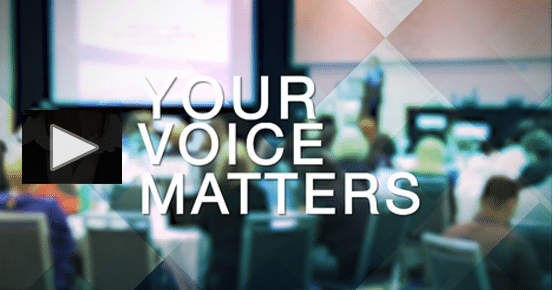
There was so much buzz in Washington, DC during AACTE’s 2019 Washington Week this month that we had to capture it all in a video! Check out the recap video above to view AACTE members at work for teacher education during our annual advocacy event. Then, be sure to access the variety of online resources that will help let your local elected officials know that “Your Voice Matters.”
- Ed Prep Matters continues to bring you reports from the event. Read what presenters, participants, and staff learned and what related opportunities are available.
- For photos from the event, visit our Facebook album. Feel free to tag yourself and share photos on your own page and check out the Facebook Live videos!
- Look up the hashtag #AACTEWW19 on Twitter and read through several tweets about the event.
- Visit AACTE’s Advocacy Center for the latest resources on federal and state policy issues about teacher preparation.
Plan now to join AACTE next year for the 2020 Washington Week, May 31 – June 3 at the Renaissance Arlington Capital View Hotel in Arlington, VA and on Capitol Hill.
24 Jun2019
By Carla Roberson
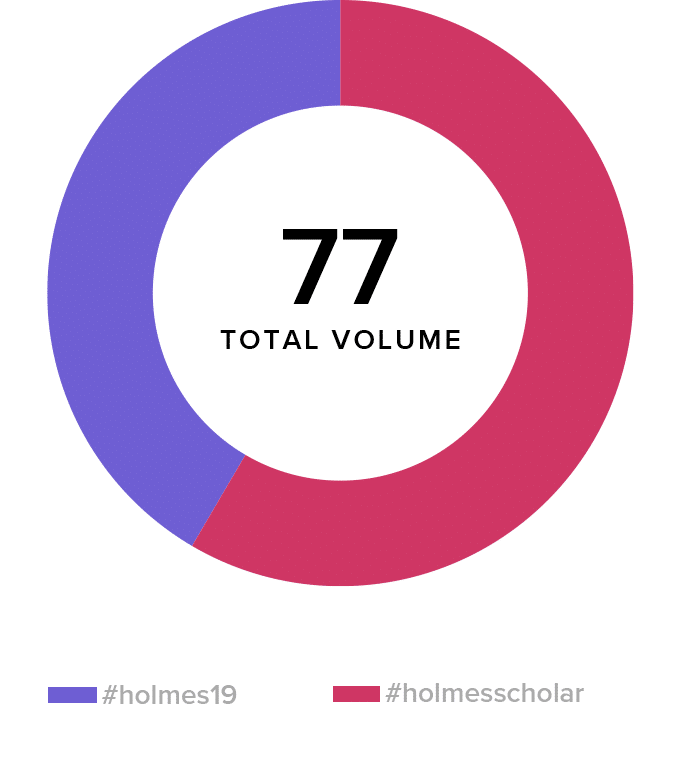
AACTE’s Holmes Scholars were busy on Twitter advocating for education policy issues using their hashtags #HolmesScholar and #Holmes19 during Washington Week this month. The students learned how to elevate their voices and research to positively impact future policies for students of color and other marginalized groups during the Holmes Summer Policy Institute, June 3. They wasted little time in implementing these best practices throughout the week’s events particularly during their participation in AACTE’s Day on the Hill. From Facebook Live interviews to Twitter posts, the Holmes Scholars made their voices heard on why it is important for education students to play an active role in advocating for the teaching profession.
The Holmes Scholars have also turned to social media to grow their community and to stay connected year round. You can follow the AACTE Holmes Program on Facebook, on Instagram at @aacteholmesscholars, and on Twitter at @HolmesScholars, and follow the hashtags: #OnceAScholarAlwaysAScholar, #HolmesScholar, and #Holmes19.
24 Jun2019
By Eva Zygmunt, Susan M. Tancock and Kristin Cipollone
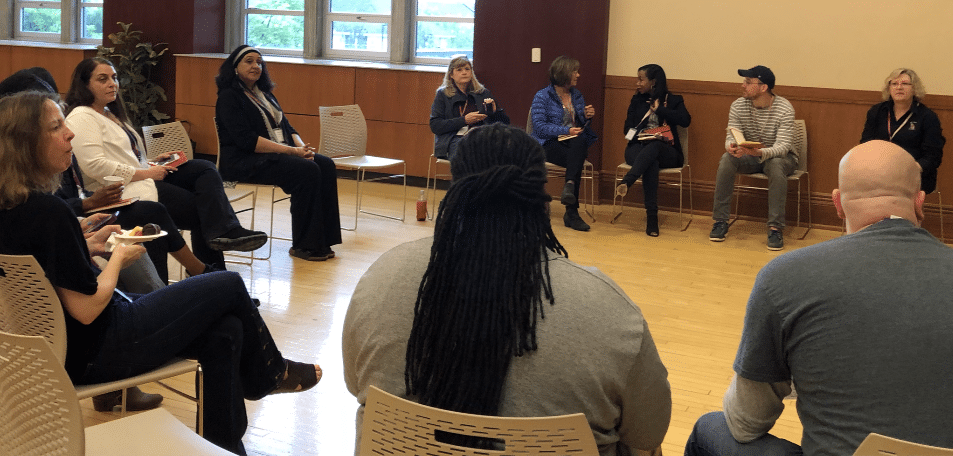
The 13 people who attended the first gathering of the Community-Engaged Teacher Preparation Topical Action Group (TAG) at the 2019 AACTE Annual Meeting in Louisville deemed it a great success. TAG participants represented six national programs of teacher preparation who are all seeking to prepare socially just, equity-focused community teachers with the capacity to enact pedagogies that are culturally relevant, responsive, and sustaining.
In discussing the goals and outcomes of the TAG, participants indicated a desire to curate and disseminate literature on community-engaged teacher preparation, to engage in joint research projects, and to work together to collectively articulate the benefits of community-engaged teacher preparation to a variety of audiences and constituencies.
Future plans of the TAG involve creating a Facebook page for the purposes of communication among members where they can share resources and engage in dialogue. Members will also be able to share opportunities for grants, awards, publication venues, and research tools. Finally, the members discussed ways the TAG could advocate to advance community-engaged teacher preparation as a justifiable and compelling direction for the field.
23 Jun2019
By Jane E. West
This blog post is written by AACTE consultant Jane West and is intended to provide update information. The views expressed in this post do not necessarily reflect the views of AACTE.
Today makes summer official! The House has certainly given us something to celebrate!
-
- Massive Spending Bill Passes House with Large Increases for Education!
Education advocates are taking a moment to rejoice in a funding bill (H.R. 2740) that passed the House this week (with a vote count of 226-223) calling for a record high level of spending for the Department of Education bringing total investments to $75.9 billion. Big winners in the bill include Title I, special education and social emotional learning. Notably, the bill cuts funding for charter schools by 10%.
The rejoicing is tinged with the knowledge that this is as good as it will get for education spending. Unfortunately, the Senate will not have numbers this high, as the budget caps, which are yet to be determined, will undoubtedly require lower figures. And the Trump Administration has indicated that it would veto this bill.
The focus now turns to the Senate where Appropriations chair Sen. Richard Shelby (R-AL) has indicated that they will begin moving bills in July. But that pesky budget deal lurks around the corner.
See the CEF charts on individual education program funding.
21 Jun2019
By Brandon R.T. Frost
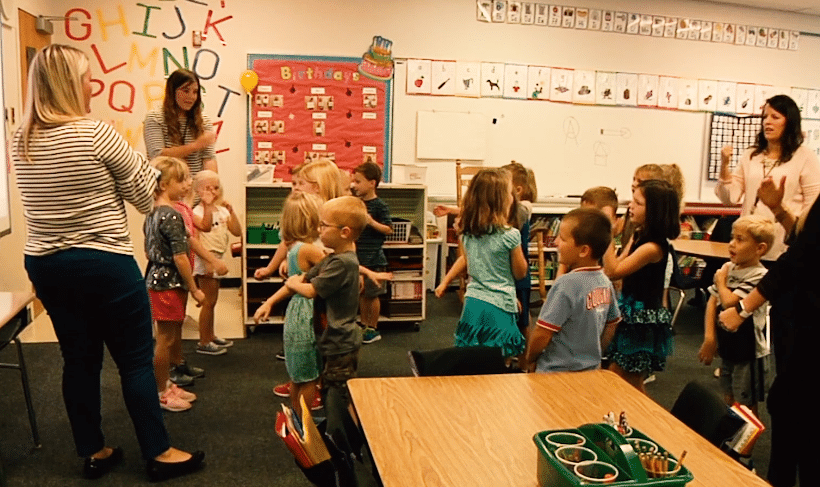
The Early Childhood Inclusive Education Program at Bowling Green State University (BGSU) prepares teachers to educate the youngest of school-age children with a solid foundation for learning. “This program is an example of innovation as it relates to making sure our students at the earliest stage have opportunities to develop and be successful in their lives,” says Rodney Rogers, president of Bowling Green State University. As a public university, BGSU sees itself as serving the public good and views the College of Education & Human Development as a place where all teacher candidates are prepared to meet the needs of their students. Teachers who graduate from the program are ready to enter the classrooms with the skills to accommodate all students.
21 Jun2019
By Ward Cummings
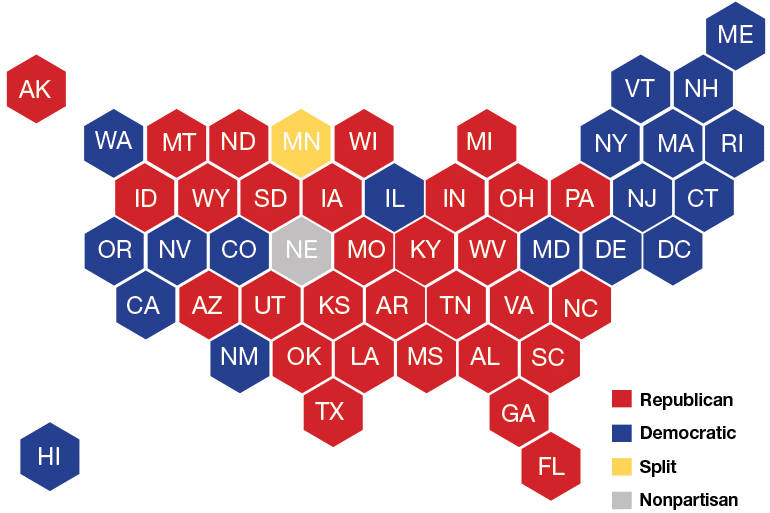
For the first time since 1914, all but one state legislature in the U.S. is dominated by a single party. The result has been a pattern of conservative leaning legislation in Republican-held states and liberal legislation in states controlled by Democrats. This is a political dynamic that will have far-reaching consequences for education policymaking well into the future. To find more information about the types of education bills being developed and advanced around the country and how politics is playing a leading role in state policymaking, view the State of the States webinar.
Originally presented at the State Leaders Institute during the 2019 AACTE Washington Week Conference, this video and the accompanying PowerPoint presentation, helps to demystify policymaking at the state-level by focusing on the political drivers that influence policymaking.
The 2019 State of the States webinar answers questions such as: What types of education bills are advancing in Democrat and GOP dominated legislatures? What role are governors playing in the education policymaking of their states? How are political leaders in state governments working together to influence education policy? And, what are the emerging trends among states in the ed-prep arena?
With a special emphasis on how “one-party-dominated” political leadership can dictate the development and shape the progress of education bills in a state, this webinar provides both a 30,000-foot and a ground-level perspective on education legislation, and will help you to see what it takes today to pass a bill in a state with one-party rule.
21 Jun2019
By Action News Jax
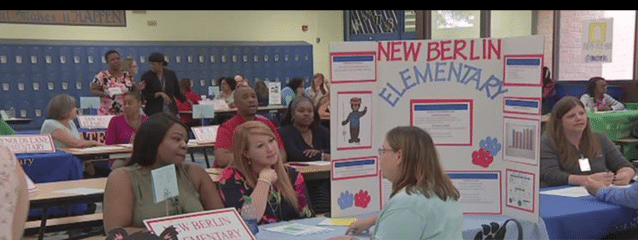
This article and photo originally appeared on Action News Jax and are reprinted with permission.
The Duval County School District is working hard to recruit between 200-250 teachers before the start of this school year.
That number is down since Action News Jax first told you last week the school district needed to fill more than 400 holes.
Action News Jax reporter Courtney Cole shows us a program that’s helping to recruit, admit and support local scholars going into education.
“This is a really big opportunity for us, knowing that we have a really big role to fill,” said Jarred Jackson.
Jackson is just one of the nine teens starting his journey to fill the really big role of an educator.
“Just knowing that we can and that we’re able to—is very exciting for us,” Jackson told Action News Jax Courtney Cole.
Right now teachers are in high demand across the state—and in Duval County.














